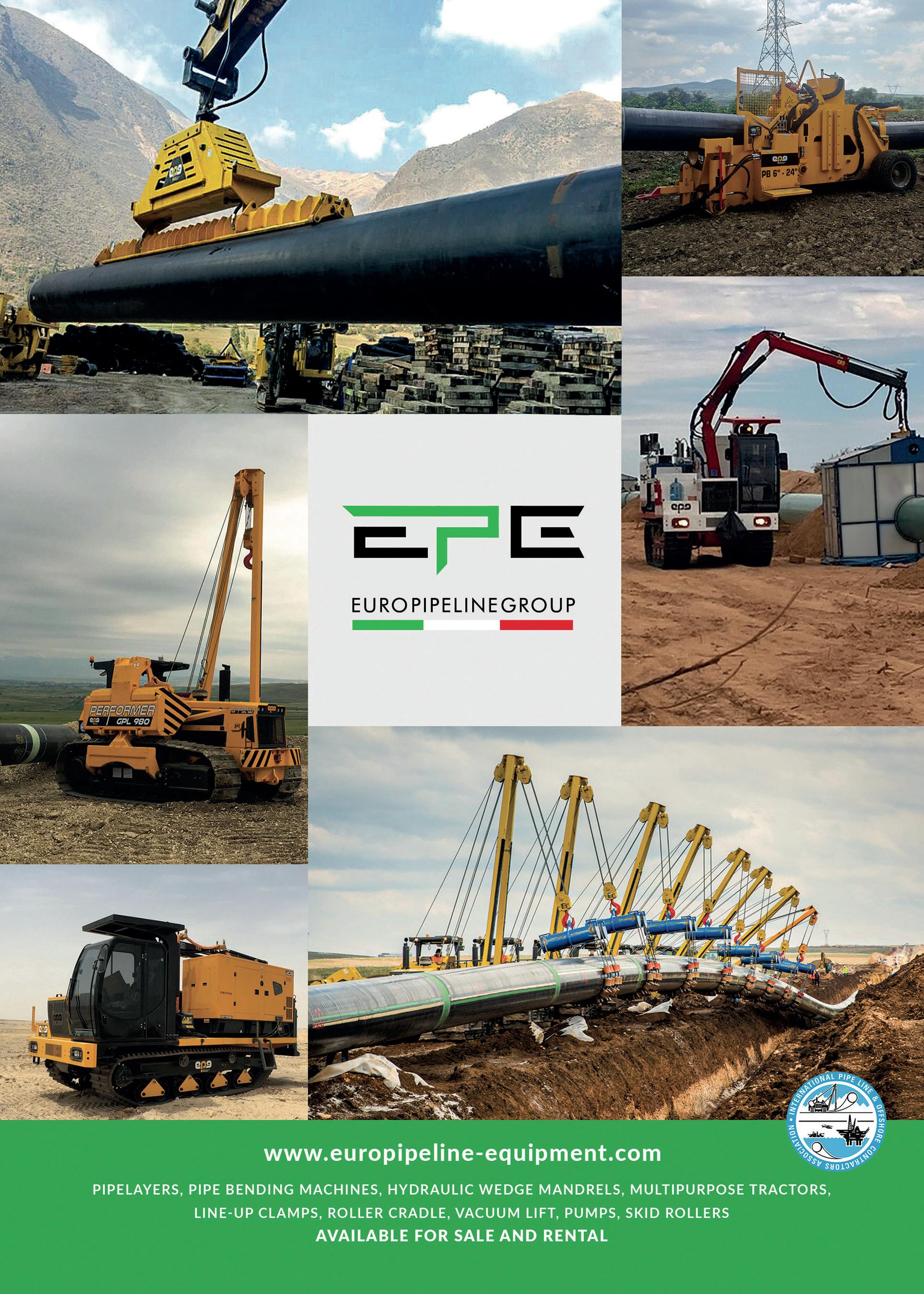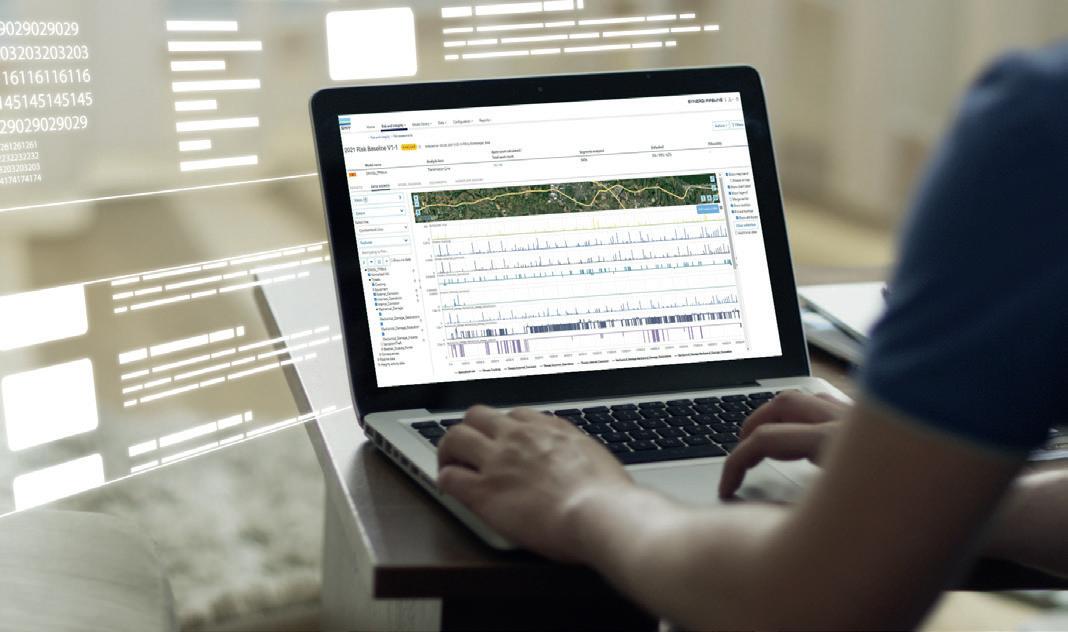
4 minute read
Machine learning: a new partnership

Figure 3. DNV’s Synergi Pipeline software – demo data shown – provides a holistic risk classification of the company’s transmission and distribution pipelines so NGC will be able to share a complete risk picture across the organisation for use in many different types of projects.
) Risk-based analysis at individual asset level or on a regional or spatial basis.
) A tool to identify and locate threats on the pipeline as well as any main drivers of risk.
) Support to inline inspection and probabilistic analysis to report the data and assist in the integrity and preventative maintenance planning.
) Scenario planning – allowing NGC to use data to predict the future changes and determine actions on how the organisation should respond to those scenarios.
) One central data management system to store all pipeline data including built-in risk libraries for detailing defects and integrity data analytics.
NGC’s mission statement is to be ‘best in class’ through the fulfilment of international standards and regulations and by pioneering innovative, digital solutions. The business is greatly committed to sustainability by protecting the ‘3Ps – People, Planet and Profits’ which makes maintaining the reliability and safety of their distribution and transmission pipelines of utmost importance.
Fast-tracked digitalisation The world is going to need more modernised pipelines to connect new sources of supply and demand for gas in the energy transition, according to forecasters.4 If they are to meet this demand sustainably and safely, pipeline operators need greater operational efficiency, smarter ways to ensure safety, and decarbonised gas systems and gases to maintain their social license to operate.
DNV’s Industry Outlook 2021, which provides a snapshot of the investment intentions and priorities of pipeline operators for the current year, states that 69% of those questioned in its annual survey, reported that digitalisation will be the key area of investment/focus for their organisations in the year ahead. This was clear in 2020 when many companies fast-tracked the adoption of digital technologies due to the global effect of COVID-19.
The pandemic has not only increased attention on how digital solutions can make organisations more adaptable and cost-efficient; it has also forced companies to discard the normal rules and become more open to change. Results from the DNV research clearly demonstrate the results that the rapid uptake of digitalisation is having: ) Almost three-quarters (73%) of respondents reported that it is critical for their organisation’s survival.
) 37% of pipeline professionals say that their organisation outperformed rivals in 2020 due to the strength of digitalisation.
) Nearly twice as many (62%) say that it has had a transformative impact on their organisation.
) 32% believed their organisation has struggled in the past year because of underinvestment in digital tools and technologies.
Insight and expertise at your fingertips While digital tools and technologies are enablers to improve performance, it is the ingenuity, experience and knowledge behind the data that gives a digital platform like Synergi Pipeline its credibility.
DNV has been the technical advisor to the oil and gas industry for more than 100 years and extends this expertise to developing best-in-class software and services such as risk assessment, MAOP verification, failure investigation, and evaluation of integrity management procedures. The company’s motivation is to fully support customers in all stages of the integrity lifecycle, from assessing the pipeline’s risk to managing and analysing inspection data, to planning mitigation actions.
Close and long-standing relationships with customers such as NGC have led to continuous improvements and valueadding functionality. The latest version of Synergi Pipeline allows more efficient and comprehensive integration of pipeline knowledge from around the company and across various lifecycle stages. The holistic risk classification platform ensures timely and appropriate maintenance regimes can be planned and risk mitigated where it is needed the most.
As the focus on pipeline safety increases, stricter regulations demand better solutions for integrity management – digitalisation holds the key to improve performance, increase efficiency and protect lives and the environment. As the industry evolves, DNV is proud to have been working with clients such as NGC to usher in a cleaner, more collaborative, and more digital future.
References
1. https://www.offshore-technology.com/comment/t-t-natural-gas-risk/ 2. https://www.upstreamonline.com/lng/trinidad-tobago-determined-tocarve-out-natural-gas-role-in-changing-world/2-1-1023318 3. https://energynorthern.com/2021/09/13/trinidad-and-tobagoto-dominate-natural-gas-production-from-upcoming-projects-inamericas-in-2025/ 4. https://eto.dnv.com/2021
Steve Roberts and Rob Roberts, Opportune LLP, discuss why applying machine learning and artificial intelligence technologies can go a long way toward enhancing workflow efficiencies in the pipeline industry.

As the pipeline industry continues along its digital transformation journey, in some ways accelerated by the pandemic, it still lags other major industries. Some areas have taken off quickly, however, like machine learning and connected sensors, in part because it’s clear to see the value these technologies deliver. More data from operations that can improve efficiency or safety is an easy win.
Machine learning is gaining ground in the energy industry, but not as rapidly as the technology is advancing. In many cases it’s still stuck in the ‘proof of concept’ phase and has yet to emerge into full-fledged production use. While operations may be the source of valuable data, accounting can be an area that can clearly impact the bottom line.
With the constant flow through pipelines and meters and sensors gathering all that data, eventually the customer needs to be invoiced. Creative, and subsequently complex, commercial and tariff structures with a diverse set of customers leads to









